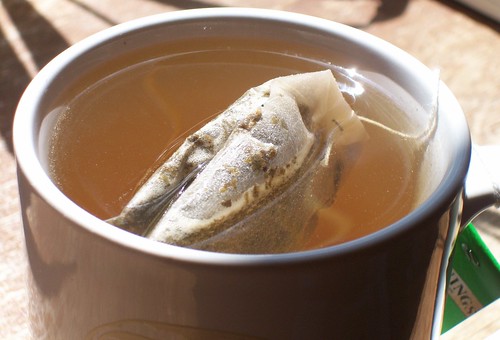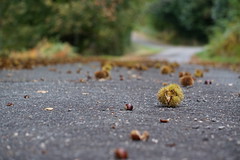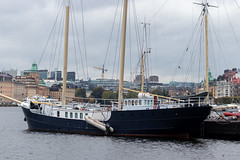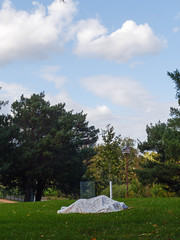Essential Truths About Water: Tea Brewing
Amanda Marksdottir

Fresh-drawn, cold water makes the best tea. The freshness of your water partially determines the final flavour of your tea. In order to brew green tea, the water ought to be about 70-80°C, instead of boiling, as this prevents some of the bitterness that can be extracted from the leaves by boiling water.
Twining's Jasmine Green Tea, in Cheshire Cat colour-changing mug (which no longer changes colour)
About the oxygen thing:
The Royal Society of Chemistry gives advice on tea, and they say that dissolved oxygen is important. The UK Institute of Physics seems to think the RSC is crap, though, so I went and asked a physicist colleague. She gives a different reason for not re-boiling your water: dissolved metal salts.
Dissolved metal salts are present as impurities in tap water. They result in a darker brew, which is cloudier because of precipitated insoluble salts such as tannates.
Boiling tap water destabilises bicarbonates, which precipitate out as insoluble carbonates when cooled. Some precipitated carbonate remains in suspension even after heated again to boiling, and will interact with the flavonoids in the tea.
Other salts in the water which are not destabilised by boiling will still concentrate by repeated evaporation, as will trace metals like iron and copper (which interact with oxygen and the tea's phenols in a redox reaction) which will also affect the flavour of the tea.
So, I stand corrected on the oxygen thing, but I still shan't use re-boiled water.
View Project:




